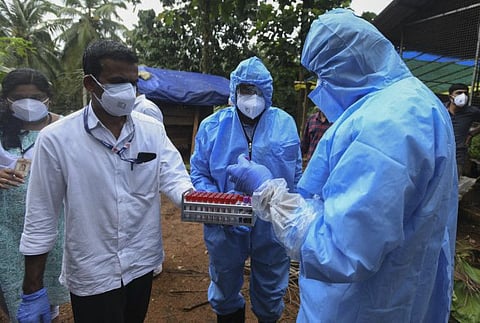Travelling to Kerala from UAE? Nipah virus triggers high alert
UAE travellers to Kerala urged to stay alert and follow local health advisories

Dubai: Health authorities in Kerala have issued a high alert in the districts of Kozhikode, Malappuram, and Palakkad after two suspected cases of the deadly Nipah virus were reported. UAE residents planning to travel to these areas are advised to exercise caution and stay updated on local health advisories.
An 18-year-old woman from Malappuram has died after testing positive for Nipah, while a 39-year-old woman from Palakkad is critically ill and on ventilator support. Over 100 people have been identified as high-risk contacts, and containment zones have been declared in parts of Palakkad. Another woman from Malappuram showing similar symptoms is undergoing treatment at Kozhikode Government Medical College Hospital.
Authorities have intensified surveillance, deployed rapid response teams, and activated Nipah protocols across hospitals. Travellers are urged to avoid contact with bats, and sick individuals, and to steer clear of raw fruits or palm sap that may be contaminated.
Containment zones declared in Palakkad
As a precautionary measure, several wards in Thachanattukara and Karimbuzha panchayats in Palakkad district have been declared containment zones.
To tackle the suspected outbreak, 26 rapid response teams have been deployed in each of the three affected districts — Kozhikode, Malappuram, and Palakkad. These teams are tasked with contact tracing, symptom monitoring, and public awareness initiatives. Police have been roped in to assist in identifying and tracking those potentially exposed.
Preventive measures stepped up
Health Minister Veena George chaired an emergency meeting and confirmed that all preventive measures under the Nipah protocol have been intensified. All hospitals have been alerted, and surveillance efforts have been ramped up.
Health officials have also been instructed to investigate any recent cases of unexplained or unnatural deaths, which could serve as early indicators of an outbreak. Another high-level review meeting is scheduled later today to assess the evolving situation and coordinate further response efforts.
UAE travellers to Kerala should:
Avoid travel to containment zones
Practice strict hygiene and avoid raw or unwashed fruit
Monitor their health during and after travel
Seek immediate medical attention if symptoms appear
For updates, follow advisories from the Kerala Health Department or Indian Embassy in the UAE.
What is Nipah Virus?
Nipah virus (NiV) is a deadly zoonotic virus that spreads from animals (mainly fruit bats and pigs) to humans and can also transmit from person to person. First identified in 1999 in Malaysia, it causes outbreaks almost annually in parts of Asia, especially Bangladesh and India.
How it spreads
Direct contact with infected animals (bats, pigs, etc.)
Consuming contaminated food or drinks (like raw date palm sap)
Close contact with bodily fluids of infected individuals
Through respiratory droplets (airborne transmission is possible)
Symptoms
Initial: Fever, headache, cough, sore throat, vomiting, muscle pain
Severe: Encephalitis (brain inflammation), confusion, seizures, coma
Symptoms appear 4–14 days after exposure.
Complications
Death rate ranges from 40% to 75%
Long-term issues include seizures, personality changes, and relapses
Some people remain symptom-free but carry the virus
Diagnosis
Early diagnosis: RT-PCR tests using throat/nasal swabs, CSF, urine, or blood
Later stages: ELISA tests for antibodies
Treatment
No specific antiviral treatment or vaccine exists. Care is supportive:
Hydration, rest, fever control
Medications for nausea, seizures, and breathing issues
Experimental monoclonal antibody treatments are under study
Prevention
Avoid contact with bats and their secretions
Do not consume raw date palm sap or soiled fruit
Practice hygiene and wear protective gear around infected patients
Monitor symptoms after visiting high-risk areas
Sign up for the Daily Briefing
Get the latest news and updates straight to your inbox

